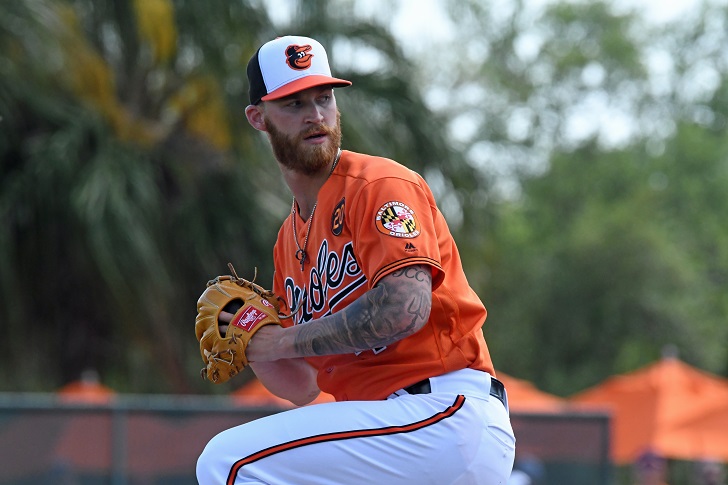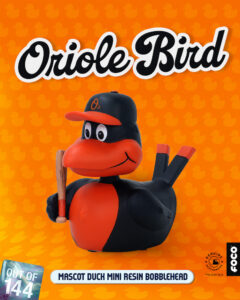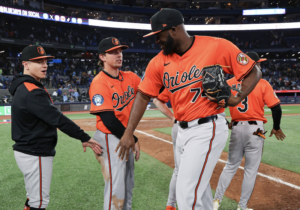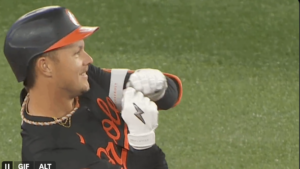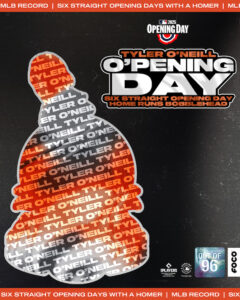1. Spring training is here and for the Orioles, it’s really a game of “who is he?” that will be played for the next six weeks. We always knew this would be the case, but it has never been more evident than through watching the team’s social media and realizing that the pitchers and catchers reporting this week really are a bunch of nobodies. Even players like All-Star John Means and top draft pick Adley Rutschman are included in that category. Means might have made the roster for last season’s Midsummer Classic and Rutschman may carry a lot of expectation with him as the #1 pick, but neither has really proven anything.
We all know this season is expected to be another long one, but I think what I’m most looking forward to is seeing actual players that are brought in by Mike Elias and his crew and how they start to formulate a roster. Sure, there are holdovers from the Dan Duquette/Buck Showalter era. But when Brandon Hyde breaks camp in six weeks and brings the team north to Baltimore, most of the players on that roster will be very unknown. They will be players mostly chosen by Elias and Hyde to help start guiding this team forward.
It’s also likely that very few if any of them will still be part of the team once (if) they start to win again in a few years. This is the nature of a rebuild.
2. Entering their time down in Sarasota, perhaps the biggest mystery surrounding the team is how it improves its pitching staff. That’s really the story in any season for the past decade-plus with the Orioles, but this season it really is anyone’s guess who ends up getting innings. Means is the only real sure bet to be a rotation mainstay after finishing second in AL Rookie of the Year voting last season. Whether he’s a significant piece of the rotation for years to come is up to him.
Beyond Means, there’s veteran Alex Cobb, who is coming off hip surgery after making just three starts last season. Cobb is heading into his third year of a four-year deal with the O’s. You can pretty much throw a bunch of names in a hat from there and find three to four other pitchers to make up a rotation. I’d venture a guess that Asher Wojciechowski will get a good look after posting somewhat decent numbers in the second half last year. David Hess didn’t put up great numbers last season (then again no one really did outside of Means), but made 14 starts and could be in line for more action this year. There are also two Rule 5 picks in Brandon Bailey and Michael Rucker to consider, as well as free agents Wade LeBlanc and Kohl Stewart.
While the rotation is an extreme mystery, the bullpen is perhaps an even bigger one. There are four names familiar to most fans – Mychal Givens, Richard Bleier, Hunter Harvey and Miguel Castro – who are going to form some type of back end of the ‘pen. It’s likely that we’ll see all of them in late inning situations and it’s also likely that none of them will have a defined “closer” role, for however few games there are for this team to actually have to close this season. All of that is fine and well, but it’s where you find the other four bullpen spots that is pretty up in the air. And they aren’t going to be guys anyone is used to seeing. It’ll look much like last year in terms of players trying to emerge. But that’s also not all bad. After all, Harvey was the player that really emerged late last season with his plus fastball and ability to get strikeouts late in games.
If the Orioles can get two more players to emerge out of a bullpen full of mystery names, it will be very good news.
3. There are tons of storylines around baseball that will dominate the early part of spring training. There’s the fallout from the Astros cheating scandal and the way it has reached other clubs like the Red Sox and Mets. Speaking of the Red Sox, they finally pushed across a deal to trade noted Oriole killer Mookie Betts away to the Dodgers in what is a completely befuddling move that will rub everyone in Boston the wrong way (I’m not that upset for them).
But the big topic that dropped earlier this week has to do with the postseason and how it will look in the coming years. The New York Post’s Joel Sherman reported the bombshell story this week about MLB looking to move from five playoff teams in each league to seven. If you haven’t heard about this new proposal by now, I urge you to look into it. But the big takeaway for me wasn’t some big baseball purist feeling. I grew up in the Wild Card era and have always known at least four teams from each league make the playoffs, which of course moved to five several years ago. If it were up to me, and it most certainly is not, the regular season would mean more. This would mean the game would go backwards to fewer teams making the playoffs and just having a league championship series and then World Series. Give me an East and West division in each league and go from there. To me, that’s part of why baseball is so great with so many games, it’s because the regular season really and truly does determine who the best teams are.
But that’s never going to happen. We’re so far removed that the toothpaste is never going back in the tube. Many believe this new-look postseason with a total of 14 out of the 30 teams would help prevent tanking teams. I don’t see it this way. The only thing that truly prevents taking is consequences. And I’m not talking consequences like forfeiting draft picks, I’m talking consequences like relegation.
MLB is not turning into European soccer either, so that is out. Tanking is always going to occur to an extent, because teams see it as the best way to turn things around.
It’s what the Orioles are doing right now, and it’s what the Astros and Cubs had some success with in years past. But it’s also not that simple. The Astros and Cubs still had to spend money, and a good bit of it, to complete their projects. That’s always going to be the case in baseball. Teams with more money, win more often. In that way, baseball IS similar to European soccer. The lack of a salary cap or salary floor will do that.
To me, these postseason changes (which likely will happen eventually) are more about Rob Manfred trying to appease his television partners rather than prevent tanking (or improve the game, even). More postseason games, and more elimination games, means more lucrative television deals. Manfred is looking out for the league’s bottom line, not the quality of the game or the smaller markets with tanking teams. He’d rather see the Dodgers and Yankees in the World Series every year for ratings. The idea overall of getting more important games down the stretch in September and even into early October is wonderful, but don’t pretend for a second that this is the real reason for the move.
If Turner Sports, ESPN and Fox Sports are all in a bidding war for more potential elimination games (and you can probably throw in a few new networks into that mix as well), then it means dollar signs for the industry of baseball. It doesn’t necessarily mean great things for the game of baseball.

